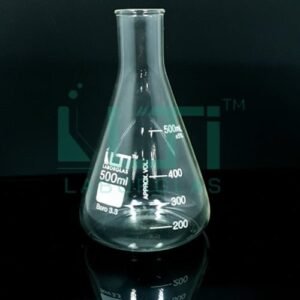- Made of Polypropylene
- Light weight
- Easy to clean & autoclavable
- Top portion snap fitted with the lower one forms a vaccum seal which requires no greasing
- Base of the top portion has perforated filter plate
| PART No. | Size (mm) | PACK Qty. |
| 7310-70 | 70 | 12 |
| 7310-110 | 110 | 6 |
| 7310-90 | 90 | 6 |
Here are some common uses of a Büchner funnel made of polypropylene:
- Chemical Filtration:
- Büchner funnels are often used for vacuum filtration of chemical solutions. The polypropylene construction makes them resistant to a wide range of chemicals, ensuring compatibility with various solvents and reagents.
- Biological Sample Filtration:
- In biological laboratories, Büchner funnels made of polypropylene are used for the filtration of biological samples such as cell cultures or microbial suspensions. The non-reactive nature of polypropylene helps prevent interference with sensitive biological samples.
- Particulate Separation:
- Büchner funnels are useful for separating solid particles from liquids. This can be important in various applications, including sample preparation, quality control, and research.
- Solid Phase Extraction (SPE):
- Polypropylene Büchner funnels are sometimes employed in solid-phase extraction processes, where they play a role in isolating and concentrating specific compounds from liquid samples.
- Educational Laboratories:
- Büchner funnels made of polypropylene are commonly used in educational laboratories for teaching filtration techniques. Their durability and chemical resistance make them suitable for repeated use in teaching settings.
- Environmental Analysis:
- These funnels can be used in environmental analysis, such as water or soil testing, where filtration is required to separate particulate matter from the sample.
- General Laboratory Filtration:
- Büchner funnels made of polypropylene find applications in various general laboratory filtration tasks, providing a convenient and chemical-resistant option for routine filtration processes.







